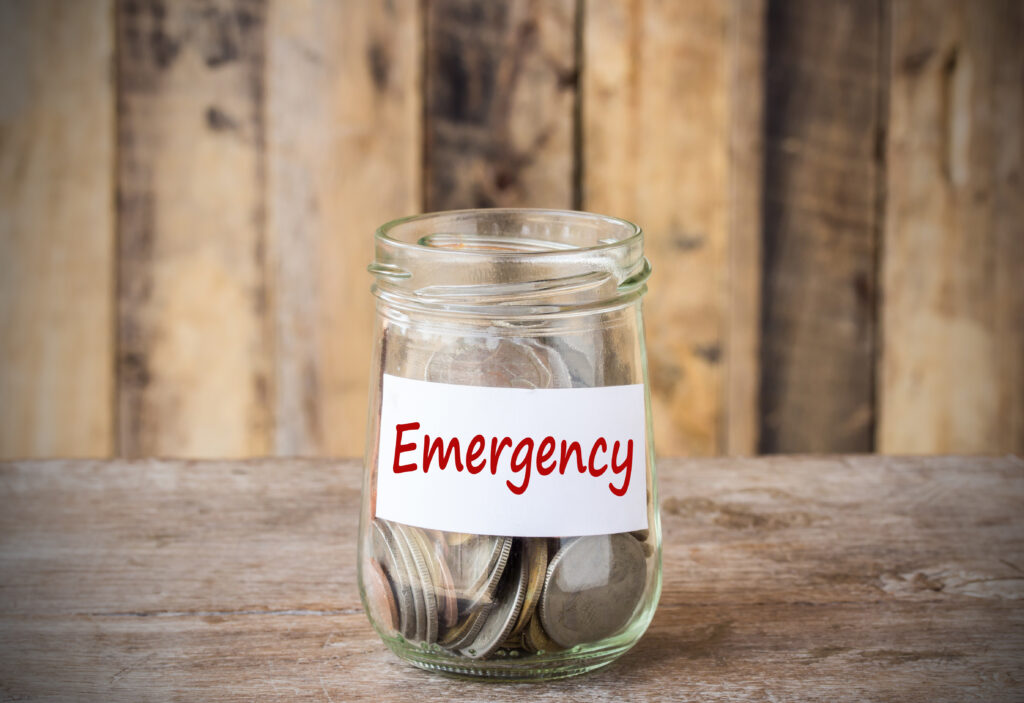Table of Contents
ToggleIn today’s fast-paced world, finding ways to save money and reduce monthly expenses has become increasingly important.
Whether you’re looking to build your savings, pay off debt, or simply live more frugally, cutting down on your monthly expenses can help you achieve your financial goals.
In this guide, we’ll explore 20 effective strategies to help you trim your budget and keep more money in your pocket.
Ways to reduce your living expenses
Track Your Spending
Start by keeping track of where your money is going each month. This can help you identify areas where you’re overspending and find opportunities to cut back.
Create a Budget
Develop a monthly budget that outlines your income and expenses. Allocate a specific amount for necessities like housing, groceries, utilities, and transportation, and set aside some money for savings and discretionary spending.
Cut Unnecessary Subscriptions
Review your subscriptions and memberships, such as streaming services, gym memberships, or magazine subscriptions.
Cancel any that you’re not using regularly or can do without.
Reduce Dining Out
Eating out can quickly add up and drain your wallet. Instead, try cooking more meals at home and packing your lunch for work. Not only is it cheaper, but it’s also healthier!
Lower Your Utility Bills
Look for ways to reduce your energy consumption, such as turning off lights when not in use, unplugging electronics, and adjusting your thermostat. You can also shop around for cheaper utility providers or negotiate lower rates with your current provider.
Shop Smarter
Take advantage of sales, coupons, and discounts when shopping for groceries and household essentials. Consider buying generic brands instead of name brands to save even more money.
Cut Down on Transportation Costs
Explore alternative transportation options, such as carpooling, biking, or taking public transit, to reduce your fuel and maintenance costs.
You can also consider downsizing to a more fuel-efficient vehicle if possible.
Limit Impulse Purchases
Before making a purchase, ask yourself if it’s something you really need or just something you want in the moment.
Avoid impulse buying and give yourself time to think it over before splurging on non-essential items.
Negotiate Your Bills
Don’t be afraid to negotiate with service providers, such as cable companies or insurance companies, to get a better deal. You may be able to lower your monthly bills simply by asking for a discount or switching to a different plan.
Downsize Your Living Space
If you’re struggling to make ends meet, consider downsizing to a smaller, more affordable home or apartment.
Moving to a less expensive area or finding a roommate can also help reduce your housing costs.
Pay Off High-Interest Debt
High-interest debt, such as credit card debt, can eat away at your budget with hefty interest charges.
Focus on paying off your highest-interest debts first to save money on interest payments over time.
Cut Back on Entertainment Expenses
Look for free or low-cost activities to enjoy in your spare time, such as visiting parks, museums, or libraries.
Host potluck dinners or game nights with friends instead of going out to expensive restaurants or bars.
Use Cash Back Apps
Take advantage of cash back apps and rewards programs when making purchases online or in-store. You can earn cash back or discounts on everyday purchases, helping you save money over time.
Avoid Overdraft Fees
Keep a close eye on your bank account to avoid overdraft fees. Set up alerts or reminders to notify you when your account balance is low, and consider opting out of overdraft protection to prevent overspending.
Refinance Your Loans
If you have high-interest loans, such as student loans or mortgages, consider refinancing to a lower interest rate.
This can help reduce your monthly payments and save you money on interest over the life of the loan.
Shop Secondhand
Save money on clothing, furniture, and other household items by shopping at thrift stores, consignment shops, or online marketplaces.
You can find gently used items at a fraction of the cost of buying new.
Grow Your Own Food
Consider starting a garden to grow your own fruits, vegetables, and herbs. Not only is gardening a rewarding hobby, but it can also help you save money on groceries and eat healthier.
Take Advantage of Employer Benefits
Review your employer’s benefits package to see if you’re taking full advantage of all available perks, such as retirement contributions, health savings accounts, or commuter benefits.
Plan Ahead for Major Expenses
Start saving for major expenses like vacations, holidays, or home repairs in advance. Setting aside a little money each month can help you avoid financial stress when these expenses arise.
Stay Motivated and Keep Track of Your Progress
Finally, stay motivated on your journey to reduce monthly expenses by tracking your progress and celebrating small victories along the way.
Set achievable goals and remind yourself of the benefits of saving money and living within your means.
Why You Should Lower Your Monthly Household Expenses
Lowering monthly household expenses is essential for several reasons:
- Financial Stability: By reducing expenses, you free up more money in your budget. This extra cash can be directed towards savings, emergency funds, or paying off debt, providing financial stability and security.
- Debt Reduction: Lowering household expenses allows you to allocate more money towards paying off debt. By chipping away at debt balances, you can save money on interest payments and work towards becoming debt-free faster.
- Increased Savings: Cutting expenses means you have more money available to save for future goals such as buying a home, funding education, or retirement. Increased savings provide a financial buffer and help you achieve long-term financial objectives.
- Flexibility and Freedom: Having lower monthly expenses gives you more flexibility and freedom in your financial choices. You’re less reliant on a steady income and better prepared to handle unexpected expenses or changes in financial circumstances.
- Reduced Financial Stress: High monthly expenses can lead to financial stress and anxiety. By lowering household expenses, you alleviate financial pressure and enjoy greater peace of mind knowing you can cover your expenses comfortably.
- Improved Quality of Life: Cutting unnecessary expenses allows you to focus on spending money on things that truly matter to you, such as experiences, hobbies, or investments in personal development. This can lead to a higher quality of life and greater overall satisfaction.
Overall, lowering monthly household expenses is a crucial step towards achieving financial stability, reducing debt, increasing savings, and enjoying greater flexibility and peace of mind in your financial life.

Benefits of Cutting Monthly Expenses
Cutting monthly expenses is essential for achieving financial goals and improving overall financial health. Here’s why trimming your budget is crucial:
- Builds Emergency Savings: Cutting expenses frees up extra money that can be directed towards building an emergency fund, providing financial security during unexpected events like job loss or medical emergencies.
- Speeds Up Debt Repayment: By reducing expenses, you can allocate more money towards paying off debt, helping you become debt-free faster and save money on interest payments.
- Increases Savings for Goals: Cutting expenses allows you to save more money for long-term goals such as buying a home, funding education, or retirement, helping you achieve financial milestones sooner.
What is the 70 20 10 Rule?
The 70 20 10 rule is a simple budgeting guideline that suggests allocating 70% of your income to living expenses, 20% to savings and debt repayment, and 10% to personal wants and desires. This rule provides a framework for managing finances effectively and achieving a healthy balance between spending, saving, and indulgence.
How Can You Save Up More Money?
Saving more money requires discipline and smart financial habits. Here are some tips to help you save up more:
- Set Clear Goals: Define your financial goals and prioritize saving towards them.
- Automate Savings: Set up automatic transfers from your paycheck to your savings account to make saving effortless.
- Cut Discretionary Spending: Identify non-essential expenses and cut back on discretionary spending to free up extra money for savings.
- Track Your Progress: Monitor your savings progress regularly and adjust your budget as needed to stay on track.
How to Create a Budget
Creating a budget is the cornerstone of effective financial management. Here’s how to create a budget that works for you:
- Calculate Your Income and Expenses: Determine your monthly income and list all your expenses, including fixed bills and variable expenses.
- Allocate Funds: Divide your income into categories based on priority, allocating money for necessities like housing, utilities, groceries, and transportation first.
- Set Savings Goals: Determine how much you want to save each month and include savings goals as a non-negotiable expense in your budget.
- Track Your Spending: Keep track of your expenses throughout the month to ensure you’re staying within your budget and adjust as needed.
By implementing these strategies and adopting smart financial habits, you can effectively cut expenses, save more money, and take control of your finances. Remember, small changes can lead to significant savings over time, so start implementing these tips today to secure a brighter financial future.
Frequently Asked Questions (FAQs)
Why is it important to lower monthly household expenses?
Lowering monthly household expenses is important for achieving financial stability, reducing debt, increasing savings, and relieving financial stress.
By cutting expenses, you free up more money to allocate towards savings, emergency funds, and other financial goals.
What are some effective ways to lower monthly household expenses?
Effective strategies for lowering monthly household expenses include reducing energy usage, cutting unnecessary subscriptions, meal planning and cooking at home, shopping smartly for groceries and essentials, and downsizing or decluttering to eliminate unnecessary expenses.
How can I create a budget to lower my household expenses?
To create a budget to lower household expenses, start by calculating your monthly income and listing all your expenses.
Allocate funds to priority categories such as housing, utilities, groceries, and transportation, and set savings goals. Track your spending throughout the month to ensure you stay within your budget.
Will lowering household expenses affect my quality of life?
Lowering household expenses doesn’t necessarily mean sacrificing quality of life. By cutting unnecessary expenses and focusing on spending money on things that truly matter to you, such as experiences or investments in personal development, you can actually improve your quality of life and satisfaction.
How can I negotiate lower bills to reduce household expenses?
Negotiating lower bills can help reduce household expenses. You can call service providers such as cable companies or insurance companies to inquire about discounts or lower rates. Sometimes, simply asking for a better deal can result in significant savings.
What are some common mistakes to avoid when trying to lower household expenses?
Common mistakes to avoid when trying to lower household expenses include neglecting to track spending, failing to set realistic budget goals, overlooking opportunities to negotiate bills or shop for better deals, and succumbing to impulse purchases.
Is it possible to lower household expenses without sacrificing convenience or quality?
Yes, it is possible to lower household expenses without sacrificing convenience or quality. By being mindful of your spending, shopping smartly for deals, and finding creative solutions to cut costs, you can effectively reduce expenses while still enjoying a comfortable lifestyle.
How long does it take to see results from lowering household expenses?
The timeline for seeing results from lowering household expenses varies depending on individual circumstances and the strategies implemented. Some changes, such as cutting subscriptions or negotiating bills, can result in immediate savings, while others, such as reducing debt or increasing savings, may take longer to see significant progress.






